
St. Julian's: The Heartbeat of Malta's Coastline
St. Julian's, located on the northern coast of Malta, is a vibrant blend of modernity and tradition. Known for its lively nightlife, stunning beaches, and historical architecture, this city offers a unique experience for all kinds of travelers. Paceville, the city's famous entertainment district, is a hub of activity with its numerous bars, clubs, and restaurants. Whether you are looking for a high-energy night out or a relaxed evening by the sea, Paceville has something for everyone. The area is especially popular among young tourists and those looking to experience Malta's vibrant social scene. For those seeking a more tranquil atmosphere, Spinola Bay is a picturesque spot with its charming fishing boats and waterfront cafes. Here, you can enjoy a leisurely meal while watching the sunset over the Mediterranean. The bay also offers a glimpse into the local way of life, with fishermen bringing in their daily catch and locals enjoying their evening walks. St. Julian's is also home to some of Malta's most luxurious hotels and resorts. These establishments offer world-class amenities and stunning views of the coastline. Whether you are staying in a high-end resort or a cozy boutique hotel, you will be treated to exceptional Maltese hospitality. Beyond the beaches and nightlife, St. Julian's has a rich history waiting to be explored. The city is dotted with historic landmarks, including the iconic Spinola Palace and the charming Church of Our Lady of Mount Carmel. Walking through the streets, you will find a blend of old and new, with traditional Maltese architecture standing side by side with modern developments.
Local tips in St. Julian's
- Visit Paceville for an electric nightlife experience with a variety of bars and clubs.
- Spend a relaxing afternoon at Spinola Bay, enjoying local seafood and picturesque views.
- Book your accommodation early, especially during the summer months, as St. Julian's is a popular tourist destination.
- Explore the historic landmarks such as Spinola Palace and the Church of Our Lady of Mount Carmel.
- Use public transport or walk to explore the city, as parking can be limited in busy areas.
St. Julian's: The Heartbeat of Malta's Coastline
St. Julian's, located on the northern coast of Malta, is a vibrant blend of modernity and tradition. Known for its lively nightlife, stunning beaches, and historical architecture, this city offers a unique experience for all kinds of travelers. Paceville, the city's famous entertainment district, is a hub of activity with its numerous bars, clubs, and restaurants. Whether you are looking for a high-energy night out or a relaxed evening by the sea, Paceville has something for everyone. The area is especially popular among young tourists and those looking to experience Malta's vibrant social scene. For those seeking a more tranquil atmosphere, Spinola Bay is a picturesque spot with its charming fishing boats and waterfront cafes. Here, you can enjoy a leisurely meal while watching the sunset over the Mediterranean. The bay also offers a glimpse into the local way of life, with fishermen bringing in their daily catch and locals enjoying their evening walks. St. Julian's is also home to some of Malta's most luxurious hotels and resorts. These establishments offer world-class amenities and stunning views of the coastline. Whether you are staying in a high-end resort or a cozy boutique hotel, you will be treated to exceptional Maltese hospitality. Beyond the beaches and nightlife, St. Julian's has a rich history waiting to be explored. The city is dotted with historic landmarks, including the iconic Spinola Palace and the charming Church of Our Lady of Mount Carmel. Walking through the streets, you will find a blend of old and new, with traditional Maltese architecture standing side by side with modern developments.
When is the best time to go to St. Julian's?
Iconic landmarks you can’t miss
Upper Barrakka
Discover breathtaking views and serene beauty at Upper Barrakka Gardens, a historic park in Valletta overlooking the stunning Grand Harbour.
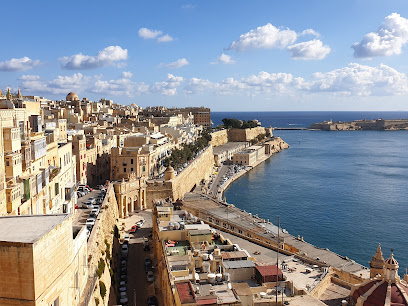
St. John's Co-Cathedral
Discover the opulence of Baroque architecture at St. John's Co-Cathedral in Valletta, Malta, home to stunning art and rich history.
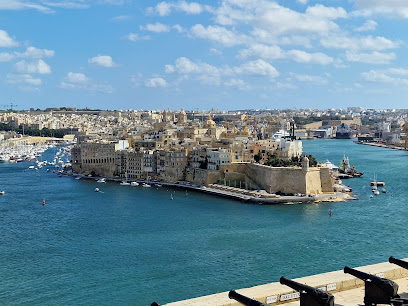
The Red Tower
Discover the rich history and stunning views at The Red Tower, a must-visit historical landmark in Mellieħa, Malta, overlooking the Mediterranean Sea.
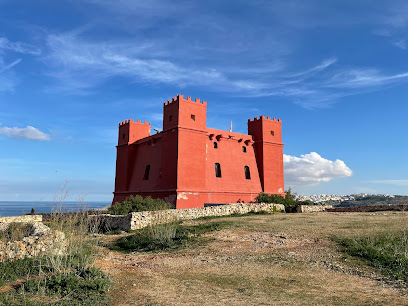
Torri ta' San Ġiljan
Explore the historic Torri ta' San Ġiljan in Sliema, Malta for stunning views and a glimpse into the island's fascinating past and vibrant culture.
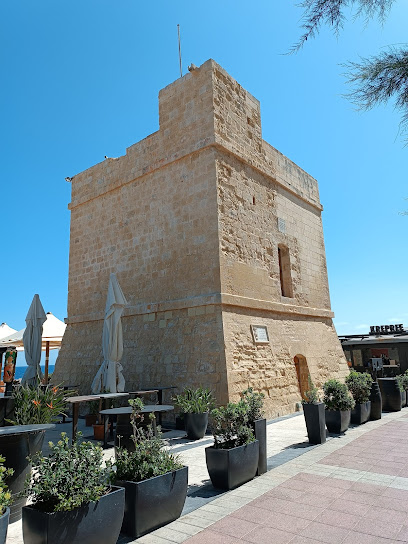
Portomaso Marina
Experience luxury and leisure at Portomaso Marina in St. Julian's, Malta, a perfect blend of stunning views, fine dining, and vibrant culture.
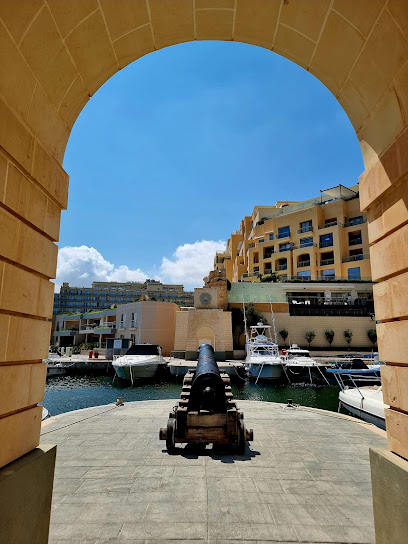
The Lascaris War Rooms
Explore The Lascaris War Rooms, Malta's WWII underground museum, and immerse yourself in the island's rich military history and heritage.
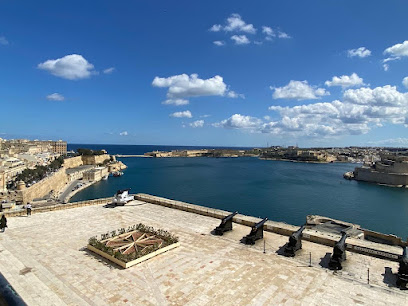
Siege Bell War Memorial
Discover the Siege Bell War Memorial in Valletta, a captivating tribute to wartime valor with breathtaking views of the Grand Harbour and rich historical significance.
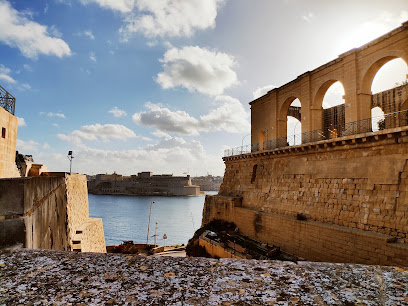
St George's Bay
Discover the beauty of St George's Bay, Malta's vibrant beach destination known for its stunning shores, water sports, and lively nightlife.
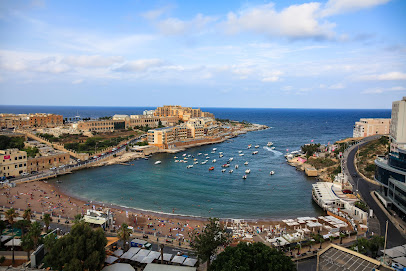
Sliema Promenade
Explore the vibrant Sliema Promenade in Malta, where stunning sea views, local culture, and delicious dining come together for an unforgettable experience.
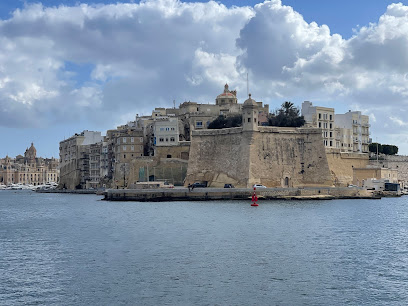
Knisja tal-Karmnu
Explore Knisja tal-Karmnu in Sliema, a stunning Baroque church blending spirituality with architectural beauty, a must-see landmark for every tourist.
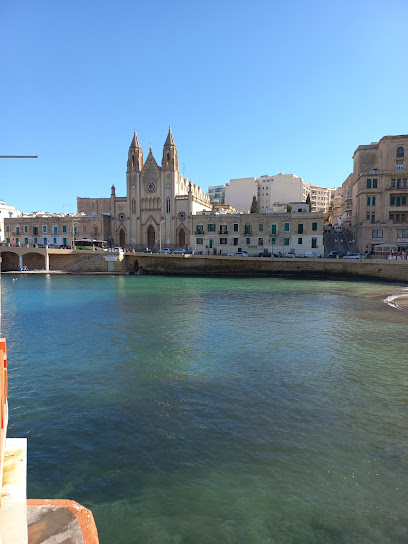
Spinola Bay
Experience the breathtaking beauty of Spinola Bay, Malta's picturesque coastal gem, where vibrant culture meets serene waters for an unforgettable getaway.
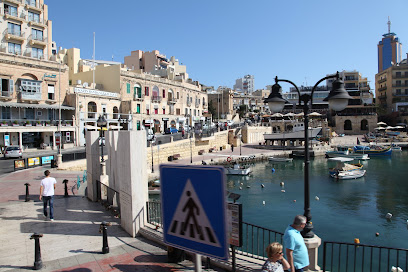
Ta' Kenuna Tower
Explore Ta' Kenuna Tower in Nadur, a historical gem offering stunning views and a serene botanical garden experience in the heart of Gozo.
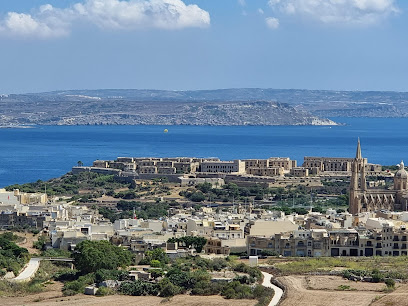
MULTIMAXX Family Entertainment Center
Experience endless fun at MULTIMAXX Family Entertainment Center in San Ġiljan, Malta, with laser tag, arcade games, and unforgettable family moments.
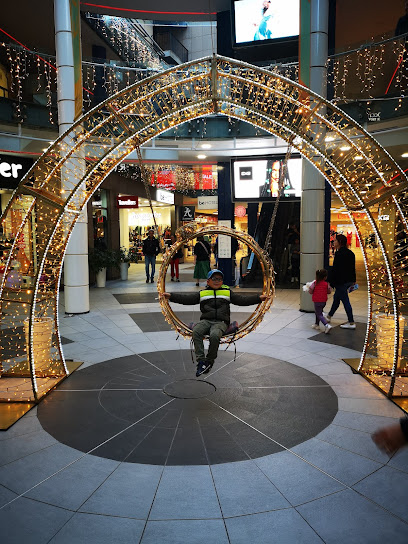
St. Julian's Parish Church
Discover the architectural beauty and spiritual serenity of St. Julian's Parish Church, a must-visit landmark in the heart of St. Julian's, Malta.
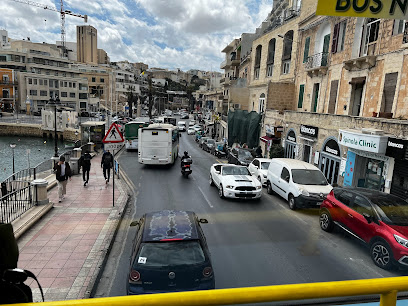
Casa Bernard
Explore Casa Bernard, a beautifully preserved 16th-century villa in Rabat, Malta, showcasing exquisite architecture and rich cultural heritage.
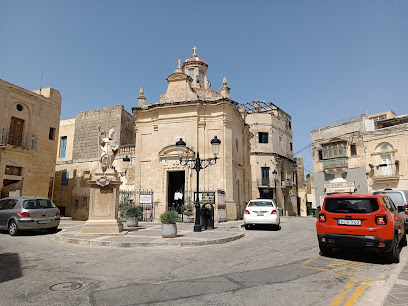
Unmissable attractions to see
Mdina Gate
Explore the enchanting Mdina Gate, an iconic historical landmark that opens the door to Malta's rich past and stunning architecture, perfect for every traveler.
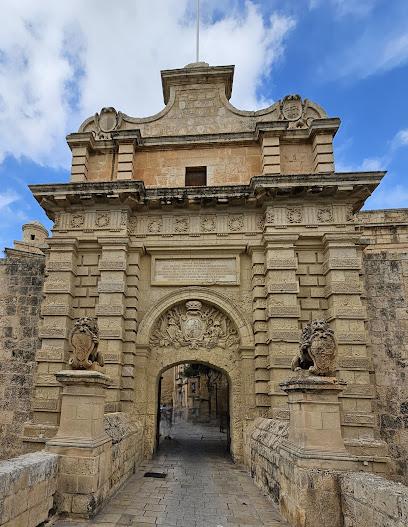
Upper Barrakka
Discover the beauty and history of Upper Barracca Gardens in Valletta, where stunning views of the Grand Harbour await every visitor.
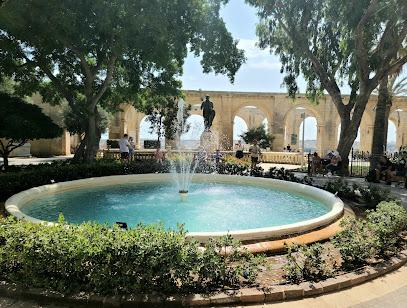
Triton Fountain
Discover the enchanting Triton Fountain, a symbol of Malta's rich heritage and a picturesque spot to enjoy the beauty of Floriana.
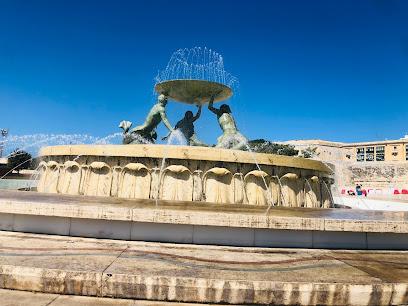
Malta National Aquarium
Explore the vibrant underwater world at the Malta National Aquarium, a top tourist attraction in St. Paul's Bay showcasing rich marine biodiversity.
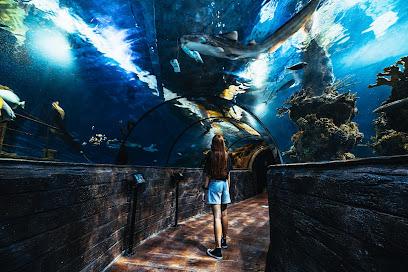
St. John's Co-Cathedral
Discover the stunning Baroque beauty and historical significance of St. John's Co-Cathedral in Valletta, a must-visit landmark in Malta.
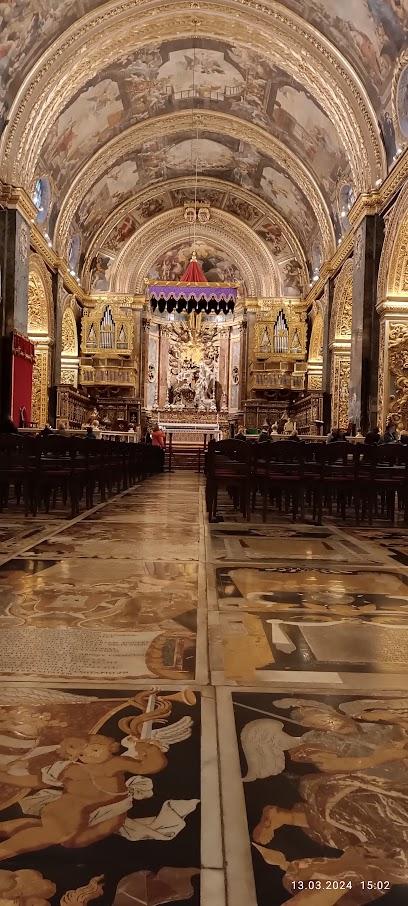
City Gate
Discover the historic City Gate of Valletta, a stunning architectural marvel that opens the door to Malta's rich cultural heritage and vibrant local life.
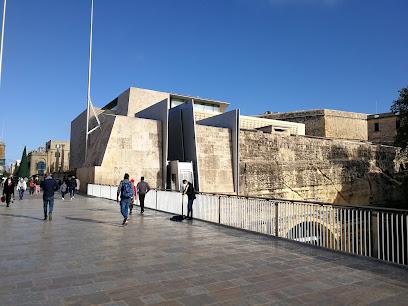
Golden Bay
Discover Golden Bay in Mellieħa, Malta – a stunning beach with golden sands, clear waters, and breathtaking views perfect for relaxation and adventure.
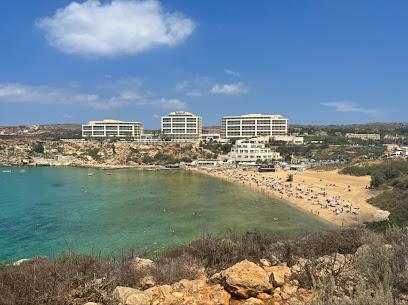
Lower Barrakka
Explore the lush landscapes and historical monuments of Lower Barrakka Gardens in Valletta, where nature meets history in a tranquil setting.
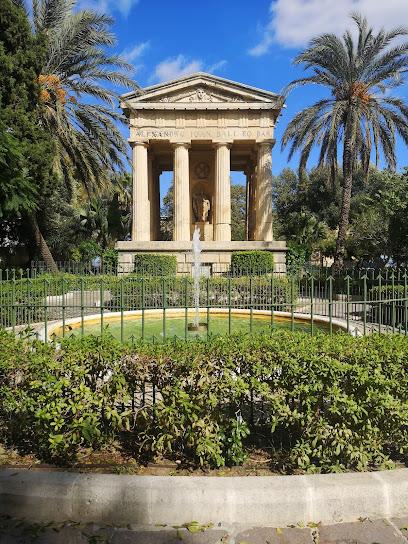
Mosta Rotunda
Explore the Mosta Rotunda, a stunning neoclassical church in Malta, known for its magnificent dome and rich history.
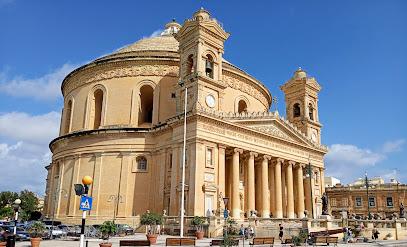
National War Museum - Fort St Elmo
Explore the rich military history of Malta at Fort St Elmo, home to the National War Museum and breathtaking views of the Grand Harbour.
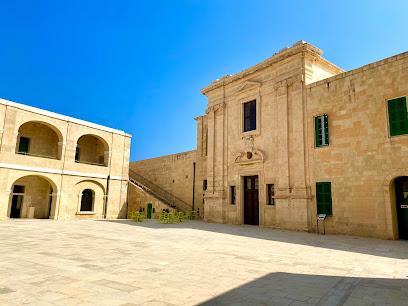
Il-Ġnien ta' Sant'Anton
Explore the tranquil beauty of Il-Ġnien ta' Sant'Anton in Balzan, Malta—a serene park steeped in history and blooming with vibrant flora.
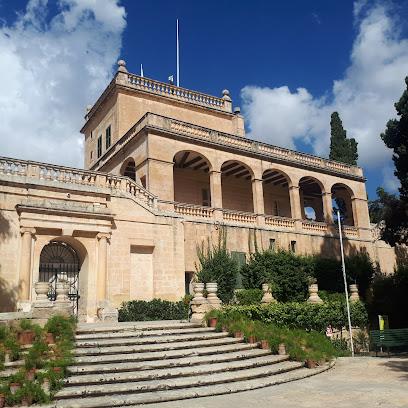
Fort St. Angelo
Discover the rich history and breathtaking views at Fort St. Angelo, a historic fortress in the heart of Birgu, Malta.
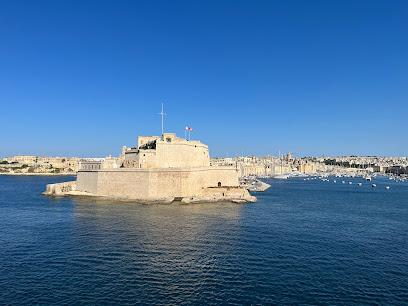
Park Nazzjonali Ta' Qali
Explore the serene landscapes and cultural heritage of Park Nazzjonali Ta' Qali, Malta's premier national park for nature lovers and adventurers.
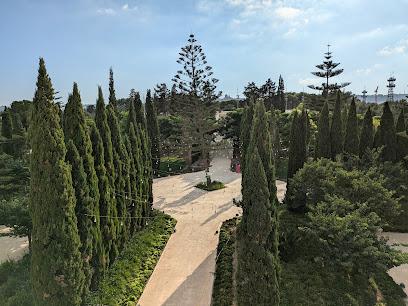
Mellieha Bay
Experience the beauty of Mellieha Bay, Malta's stunning beach destination with golden sands and crystal-clear waters perfect for relaxation and adventure.
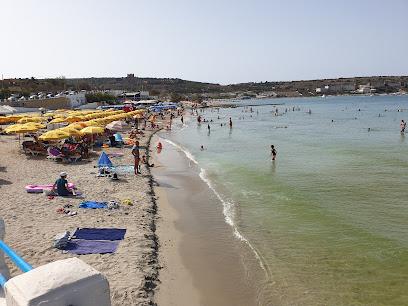
St. George’s Square
Explore the historical charm of St. George’s Square in Valletta, a vibrant hub of culture, history, and local life in the heart of Malta.
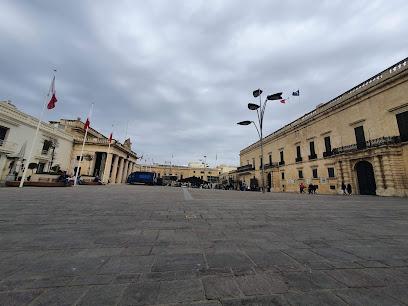
Essential places to dine
The Avenue Restaurant
Experience exquisite Mediterranean dining at The Avenue Restaurant in St. Julian's - where every meal is a celebration of flavor and culture.
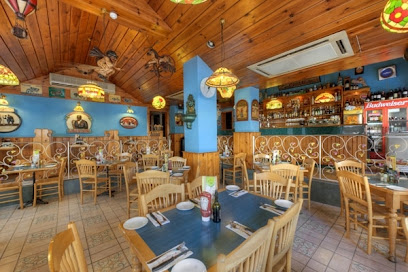
CUBA Restaurant, St.Julian's, Spinola Bay
Experience Mediterranean flavors at CUBA Restaurant in St.Julian's; where delicious cuisine meets stunning bay views.
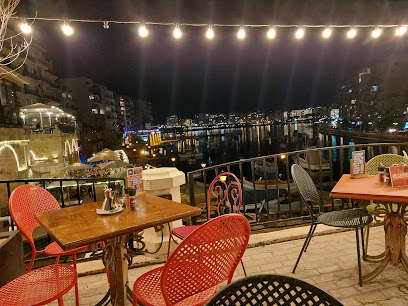
Gululu Restaurant @ Spinola Bay, St. Julians
Experience authentic Maltese cuisine at Gululu Restaurant by Spinola Bay—where delicious food meets stunning waterfront views.
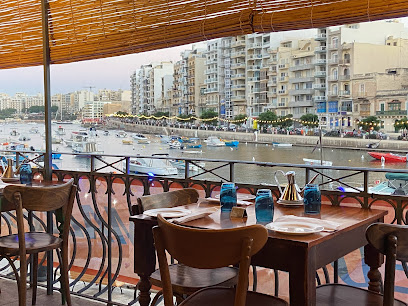
Gozitan Restaurant
Experience authentic Maltese cuisine at Gozitan Restaurant in St. Julian's - where every dish tells a story.
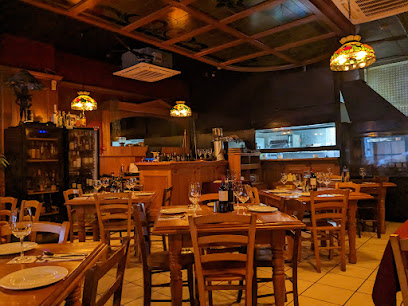
L' Ostricaio Paceville, St. Julians
Discover L' Ostricaio: A premier seafood restaurant in Paceville offering fresh Mediterranean dishes in a vibrant setting.
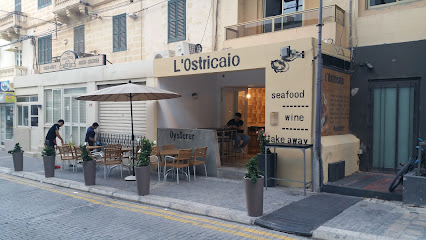
Le Majoliche
Experience exquisite Italian cuisine and fresh seafood at Le Majoliche in St. Julian's - where every meal is a celebration of flavor.
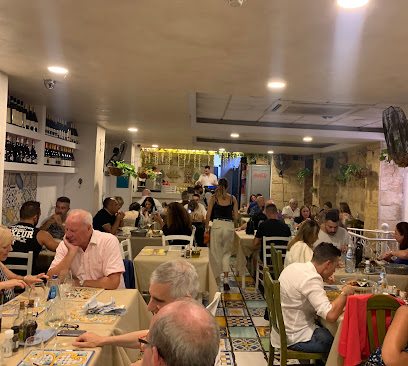
San Giuliano Restaurant
Experience exquisite seafood dining at San Giuliano Restaurant on Spinola Bay, where Mediterranean flavors meet stunning waterfront views.
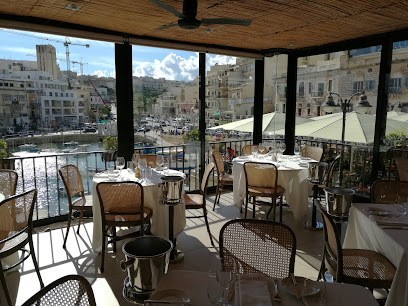
Peppino's
Experience authentic Mediterranean flavors at Peppino's in St. Julian's - where every meal is a celebration of taste and tradition.
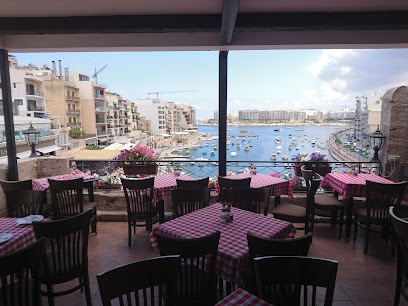
Blue Elephant
Discover authentic Thai flavors at Blue Elephant in St Julian's – where every dish tells a story and every bite is an adventure.
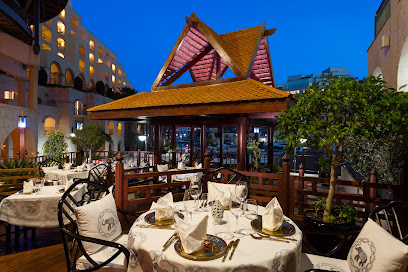
Shoreditch Bar and Kitchen
Discover the vibrant flavors of Malta at Shoreditch Bar and Kitchen – where culinary creativity meets local charm.
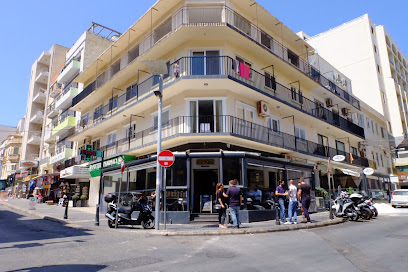
U Bistrot
Experience authentic Mediterranean cuisine at U Bistrot in St. Julian's – where every dish tells a story of flavor and tradition.
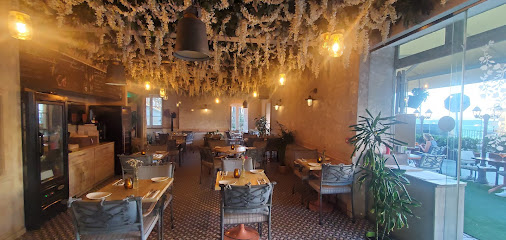
Caviar & Bull
Experience culinary excellence at Caviar & Bull, where modern European dishes meet Maltese hospitality in an elegant seaside setting.
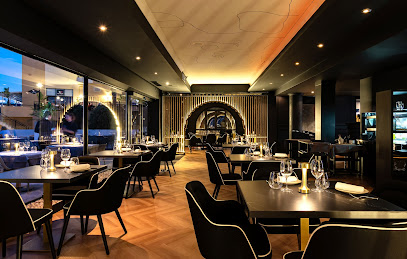
Salt & Pepper
Discover the best of Mediterranean cuisine at Salt & Pepper, where grilled delicacies meet vibrant atmosphere in St Julian's.
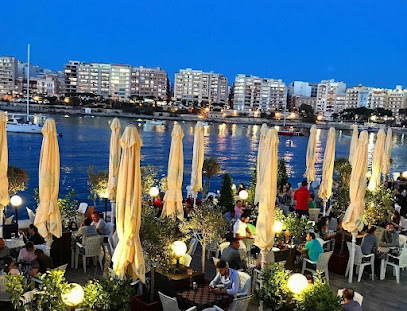
Santini Restaurant
Experience authentic Italian cuisine at Santini Restaurant in St. Julian's – where every dish tells a story of flavor and tradition.
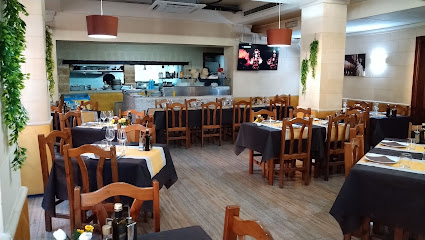
Sciacca Grill
Experience the ultimate steak indulgence at Sciacca Grill in St. Julian's – where every bite is a celebration of flavor.
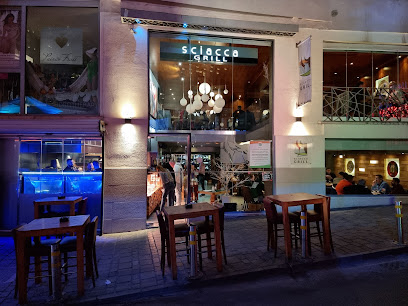
Markets, malls and hidden boutiques
Bay Street Shopping Complex
Discover the ultimate shopping experience at Bay Street Shopping Complex in St. Julian's, Malta, where retail meets dining and entertainment.
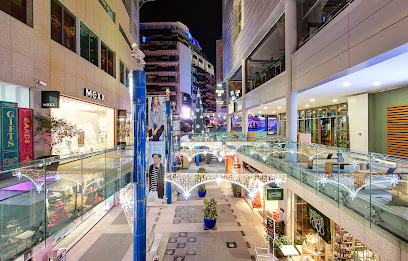
Cleland & Souchet
Explore Cleland & Souchet, a charming gift shop in St Julian's, Malta, offering unique souvenirs, exquisite wines, and stunning jewelry for every traveler.
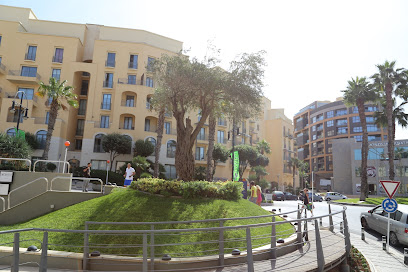
Travellers - St.Julian's
Explore the enchanting coastal town of St. Julian's, Malta, where history meets modern charm amidst stunning waterfront views.
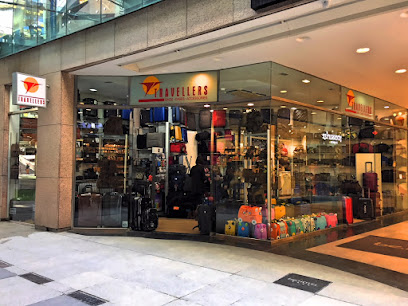
Mercury Shopping District
Experience the ultimate shopping and dining destination in St. Julian's, Malta, where vibrant boutiques meet delightful eateries.
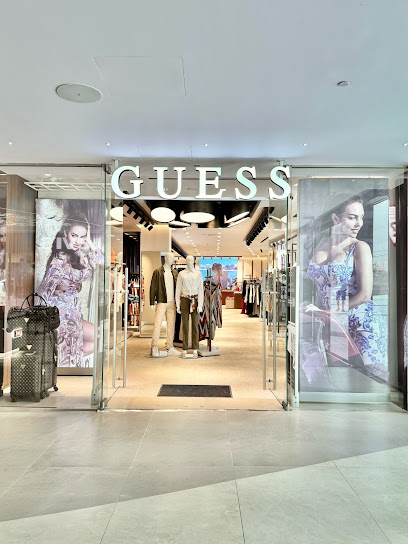
BOSS Menswear Store
Experience luxury shopping at BOSS Menswear Store in St Julian's, featuring stylish men's clothing, accessories, and fragrances for the modern man.
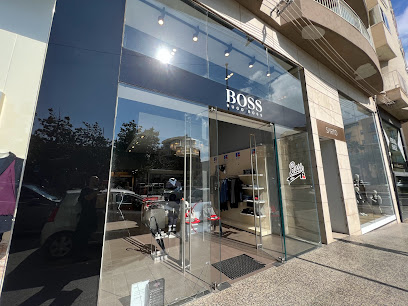
Gift Hampers Malta
Explore Gift Hampers Malta in Portomaso: Your gateway to unique gifts and local delicacies reflecting the essence of Maltese culture.

Shanteo Tea Boutique
Discover serenity at Shanteo Tea Boutique, your destination for exquisite teas, artisanal chocolates, and unique gifts in St Julian's.
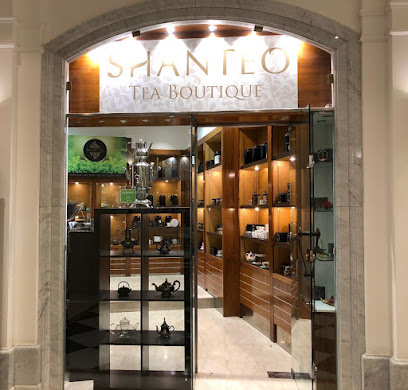
3J's Souvenir Shop
Discover authentic Maltese souvenirs at 3J's Souvenir Shop, your go-to destination for keepsakes in the heart of St. Julian's.
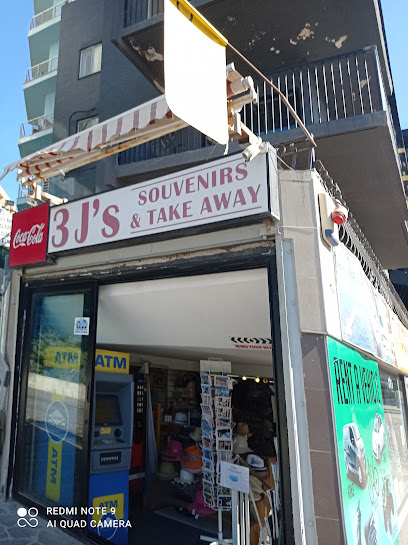
ARCHIPALS
Explore the whimsical world of ARCHIPALS, St. Julian's novelty store with unique gifts and collectibles reflecting Malta's creativity.
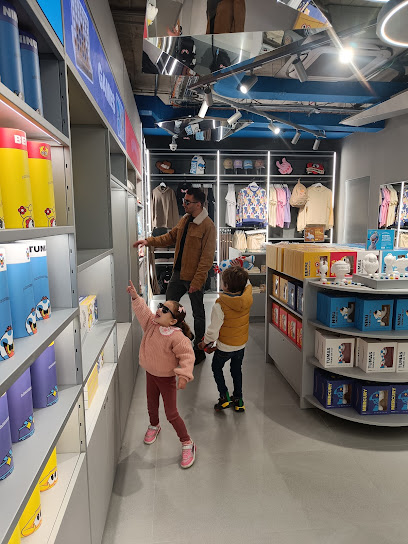
Papier
Discover unique gifts, exquisite stationery, and charming toys at Papier, St. Julian's go-to shop for memorable souvenirs.
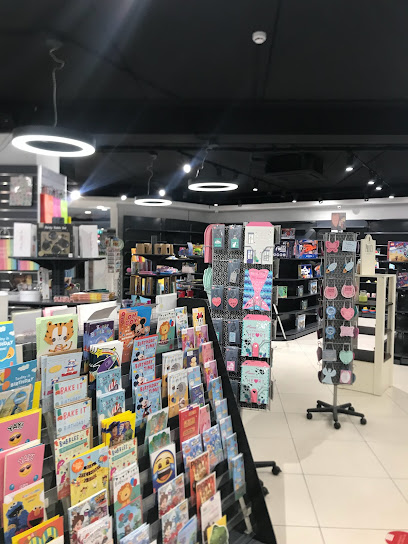
Stone Market St Julian’s
Explore Stone Market St Julian’s for unique home goods that reflect Malta's rich culture and artistic craftsmanship by the beautiful Spinola Bay.
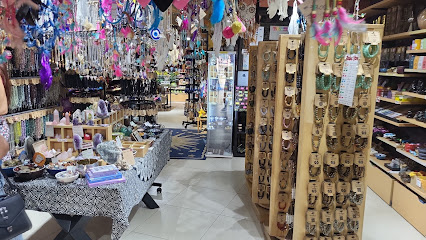
adidas Store ST Julians
Discover the latest sportswear trends at Adidas Store ST Julians, where quality meets style for every athlete and fitness lover.
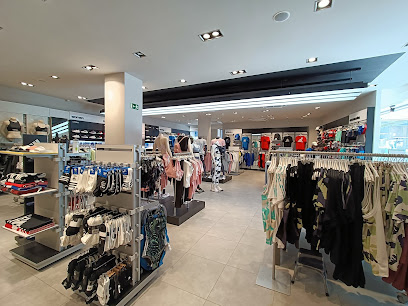
Urban Jungle Mercury
Explore Urban Jungle Mercury in St. Julian's for trendy fashion and unique finds that embody the spirit of Malta.
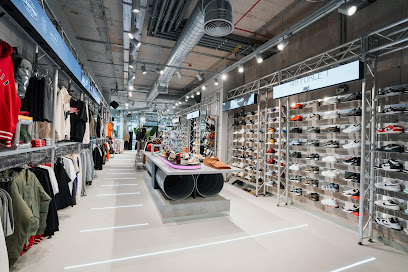
Unique Print
Explore Unique Print in St. Julian's for custom t-shirts and memorable souvenirs that capture the essence of Malta.
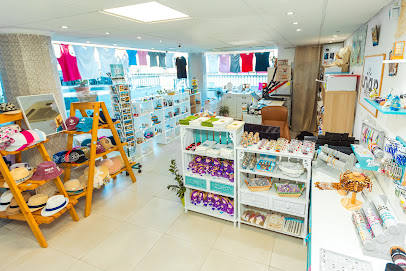
Lucy Makeup Store | Bay Street
Discover the ultimate destination for cosmetics at Lucy Makeup Store in Bay Street, St Julian's, Malta – where beauty meets expertise.
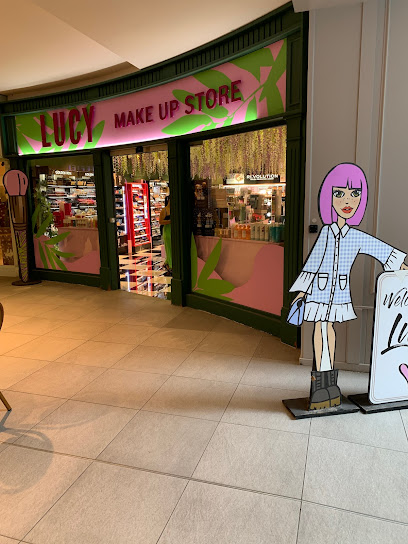
Essential bars & hidden hideouts
The Dubliner
Immerse yourself in Irish culture at The Dubliner, a vibrant pub in St Julian's, Malta, offering delicious food and lively entertainment.
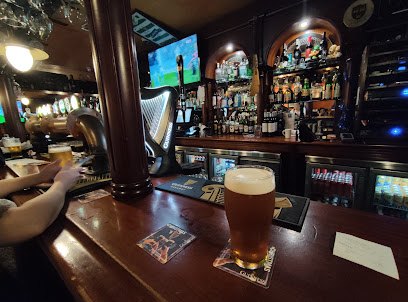
Bar Native
Experience the vibrant nightlife of St Julian's at Bar Native, where delicious drinks and great ambiance await every visitor.
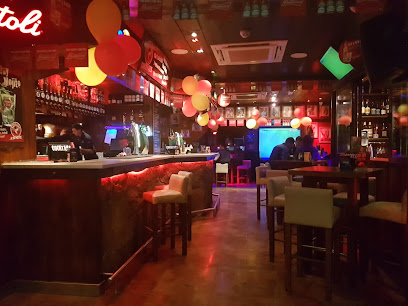
Hugo's Pub
Experience the vibrant nightlife and delicious gastropub offerings at Hugo's Pub in the heart of Paceville, Malta.
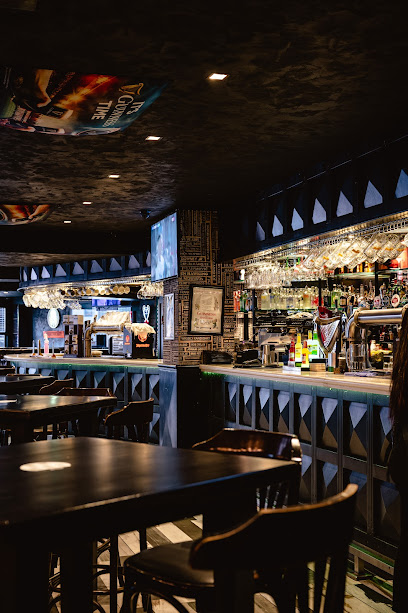
Bellinii
Discover the vibrant nightlife of St. Julian's at Bellinii, where creative cocktails and lively atmosphere await every visitor.
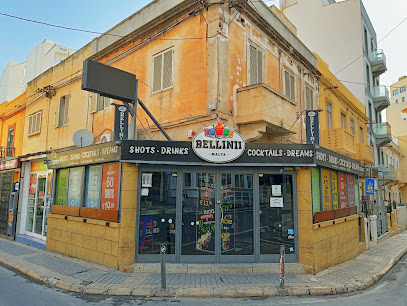
Cork's
Enjoy hearty meals, lively karaoke nights, and a spirited atmosphere at Cork's Irish pub in the heart of St. Julian's.
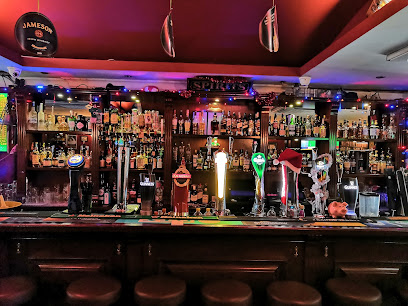
The Thirsty Barber
Experience the vibrant nightlife at The Thirsty Barber, St. Julian's premier cocktail bar, featuring live music and unique signature drinks.
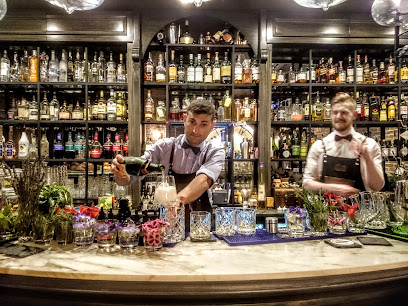
The Long Hall Irish Pub
Discover the heart of Irish culture at The Long Hall Irish Pub in St Julian's, Malta, where lively music and exquisite drinks await.
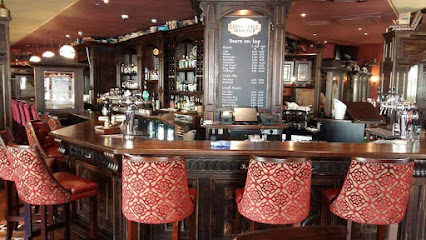
City of London Bar
Experience the vibrant nightlife at City of London Bar in St. Julian's, Malta, where great drinks and a lively atmosphere await you.
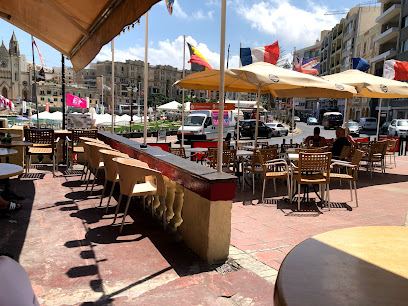
Juuls
Discover the lively atmosphere and creative cocktails at Juuls, the premier bar in St. Julian's, Malta.
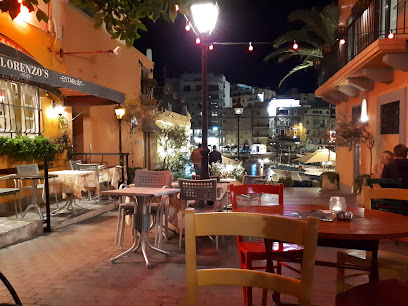
Happy Dayz Shack
Discover Happy Dayz Shack: a vibrant cocktail bar in St. Julian's offering stunning views and an unforgettable atmosphere.
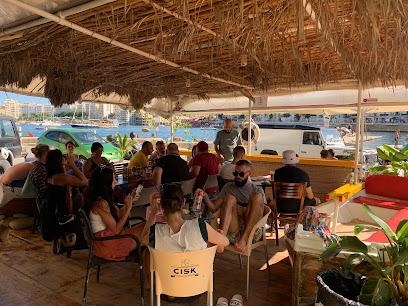
The Beer Garden
Experience the vibrant atmosphere and extensive beer selection at The Beer Garden in St Julian's, a perfect spot for relaxation and socializing.
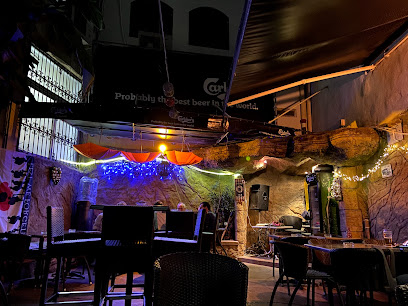
Tony's Bar
Discover Tony's Bar in St. Julian's, Malta - a vibrant spot for delicious fast food and refreshing drinks amidst a lively atmosphere.
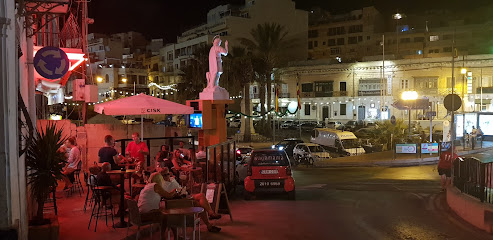
The Crafty Cat Pub
Experience the heart of Ireland at The Crafty Cat Pub in St. Julian's, Malta, where traditional flavors meet a lively atmosphere.
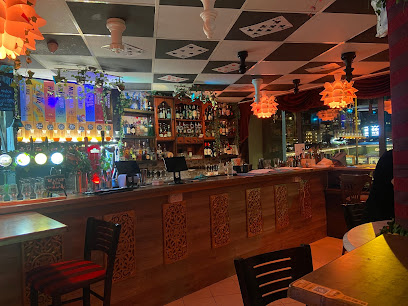
Saddles Pub St Julians
Experience the vibrant nightlife at Saddles Pub, the perfect blend of local charm and Mediterranean ambiance in St Julian's.
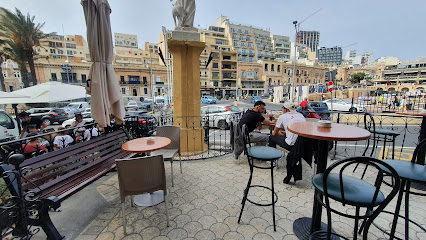
Local Phrases
-
- HelloBonġu
[bon-joo] - GoodbyeĊaw
[chaw] - YesIva
[ee-va] - NoLe
[leh] - Please/You're welcomeJekk jogħġbok/Il-ħoss
[yek yoh-hob-ok/eel-hos] - Thank youGrazzi
[grat-see] - Excuse me/SorrySkuzi/Sorry
[skoo-zee/sorry] - How are you?Kif int?
[keef eent] - Fine. And you?Tajjeb. U int?
[tai-yeb. oo eent] - Do you speak English?Titkellem bl-Ingliż?
[tit-kel-lem bing-leez] - I don't understandMa nifhimx
[ma neef-heems]
- HelloBonġu
-
- I'd like to see the menu, pleaseNixtieq nara l-menù, jekk jogħġbok
[nix-teyq na-ra l-mey-new, yek yoh-hob-ok] - I don't eat meatMa niekolx laħam
[ma nee-ek-olsh la-ham] - Cheers!Saħħa
[sa-ha] - I would like to pay, pleaseNixtieq nħallas, jekk jogħġbok
[nix-teyq n-hal-las, yek yoh-hob-ok]
- I'd like to see the menu, pleaseNixtieq nara l-menù, jekk jogħġbok
-
- Help!Għajjat!
[ai-yat] - Go away!Mur!
[mur] - Call the Police!Ċempel l-Pulizija!
[chem-pel l-pu-leet-see-ya] - Call a doctor!Ċempel tabib!
[chem-pel ta-beeb] - I'm lostInħallas
[in-hal-las] - I'm illJien imdejjaq
[yeen im-dey-yak]
- Help!Għajjat!
-
- I'd like to buy...Nixtieq nagħmel ix-xiri...
[nix-teyq na-mel ish-she-ree] - I'm just lookingQed nara biss
[ked na-ra beess] - How much is it?Kam jiswa?
[kam yis-wa] - That's too expensiveDan huwa wisq sħiħ
[dan hoo-wa wees-shi] - Can you lower the price?Tista' tnaqqas il-prezz?
[tis-ta tna-kwas il-prez]
- I'd like to buy...Nixtieq nagħmel ix-xiri...
-
- What time is it?Xi ħin hu?
[she heen hoo] - It's one o'clockHuwa waħda
[hoo-wa wa-hda] - Half past (10)Noqs f'għaxar
[noqs fay-ashar] - MorningFilgħodu
[fil-odoo] - AfternoonWaranofsinhar
[wa-ra-no-sin-har] - EveningFilgħaxija
[fil-a-ksee-ya] - YesterdayIlbieraħ
[il-bi-er-ah] - TodayIllum
[il-lum] - TomorrowGħada
[a-da] - 1Wieħed
[wee-hed] - 2Tnejn
[t-neyn] - 3Tlieta
[tlee-ta] - 4Erba'
[er-ba] - 5Ħamsa
[ham-sa] - 6Sitta
[sit-ta] - 7Sebgħa
[seb-a] - 8Tmienja
[tmeen-ya] - 9Disgħa
[dis-a] - 10Għaxra
[a-shra]
- What time is it?Xi ħin hu?
-
- Where's a/the...?Fejn hemm...
[fyen hemm] - What's the address?X'inhu l-indirizz?
[shin-hu l-ind-ee-rez] - Can you show me (on the map)?Tista' turieli (fuq il-mappa)?
[tis-ta too-ree-li fooq il-map-pa] - When's the next (bus)?Meta hu l-ewwel (karozza)?
[me-ta hoo l-ewel ka-rot-za] - A ticket (to ....)Biljett (għal ....)
[bil-yet tal]
- Where's a/the...?Fejn hemm...
History of St. Julian's
-
St. Julian's, known locally as San Ġiljan, has a history that dates back to the Bronze Age. Archaeological evidence suggests that the area was inhabited by ancient civilizations, with various artifacts and structures discovered in the region. The town was named after Saint Julian, the patron saint of hunters, which reflects the area's historical significance as a hunting ground.
-
During the medieval period, St. Julian's was a small fishing village. Its strategic location along the coast made it an important spot for maritime activities. The arrival of the Knights of St. John in the 16th century marked a significant turning point. The Knights fortified Malta, including the area around St. Julian's, to protect against Ottoman invasions. The Balluta Bay area, in particular, became a focal point for these defensive measures.
-
In the 17th century, Fra Paolo Raffaele Spinola, a Knight of St. John, constructed the Spinola Palace in St. Julian's. This Baroque-style palace remains one of the most iconic landmarks in the town. Spinola also initiated the development of the area, turning it into a summer retreat for the Knights. The palace and its surrounding gardens played a central role in the social and cultural life of the time.
-
With the arrival of the British in the early 19th century, Malta, including St. Julian's, underwent significant changes. The British introduced modern infrastructure, including roads and public services. The establishment of the Malta Railway in 1883, which connected Valletta to various parts of the island, facilitated travel and commerce. St. Julian's began to transform from a quiet village into a bustling town.
-
World War II brought considerable hardship to Malta, and St. Julian's was no exception. The area suffered from aerial bombardments, leading to significant destruction. Post-war reconstruction efforts saw the rebuilding of damaged structures and the development of new residential and commercial properties. This period marked the beginning of St. Julian's transformation into a modern urban center.
-
From the latter half of the 20th century, St. Julian's emerged as a premier tourist destination. The construction of luxury hotels, restaurants, and entertainment venues, particularly in the Paceville area, attracted visitors from around the world. St. Julian's became synonymous with vibrant nightlife, beautiful beaches, and a cosmopolitan atmosphere. The town continues to evolve, blending its rich historical heritage with modern amenities.
St. Julian's Essentials
-
St. Julian's is located on the northeastern coast of Malta. The nearest international airport is Malta International Airport (MLA), approximately 10 kilometers away. From the airport, you can take a taxi directly to St. Julian's, which takes around 20 minutes. Alternatively, you can use the public bus service, with routes X2 and TD2 connecting the airport to St. Julian's. Car rental services are also available at the airport for those who prefer to drive.
-
St. Julian's is well-connected by public transportation. The Malta Public Transport buses are frequent and cover most areas within and around St. Julian's. Taxis are widely available, and ride-hailing apps like Bolt operate in the area. For a unique experience, try the local ferry services that connect various coastal locations. Renting a bicycle or an electric scooter is also a popular option for getting around, especially in the summer months.
-
The official currency in Malta is the Euro (€). Credit and debit cards are widely accepted in hotels, restaurants, and shops. ATMs are plentiful and can be found throughout St. Julian's. It is advisable to carry some cash for smaller establishments and for public transportation. Currency exchange services are available at the airport, banks, and in some hotels.
-
St. Julian's is generally a safe destination for tourists. However, as with any tourist area, it is important to stay vigilant. Petty crimes like pickpocketing can occur, especially in crowded areas such as Paceville, which is known for its nightlife. Avoid walking alone late at night in secluded areas, and always keep an eye on your belongings.
-
In case of emergency, dial 112, the general European emergency number. The nearest police station is located in St. Julian's, and medical facilities, including clinics and pharmacies, are readily available. It is highly recommended to have travel insurance that covers medical emergencies. For minor health issues, numerous pharmacies in the area offer over-the-counter medications.
-
Fashion: Do dress comfortably and appropriately for the weather. Avoid overly revealing clothing when visiting religious sites. Religion: Do respect local customs and traditions. Always cover your shoulders and knees when entering churches. Public Transport: Do have exact change ready for bus fares and be respectful to drivers and fellow passengers. Don't eat or drink on public transport. Greetings: Do greet people with a friendly 'Hello' or 'Bonġu' (Good morning). A handshake is common among acquaintances. Eating & Drinking: Do try local dishes and specialties like pastizzi and rabbit stew. Don't leave a tip on the table; it is more customary to hand it directly to the server.
-
To experience St. Julian's like a local, take a stroll along the Spinola Bay waterfront and enjoy a coffee at one of the local cafes. Visit the Balluta Bay area for a quieter, more relaxed atmosphere. If you enjoy nightlife, Paceville offers a variety of clubs and bars. For a cultural experience, don't miss the local festas (festivals) that often include fireworks, music, and traditional Maltese food. Engage with locals, as they are friendly and willing to share insights about their town.
Trending Landmark in St. Julian's
Nearby Cities to St. Julian's
-
Things To Do in Sliema
-
Things To Do in Gzira
-
Things To Do in Valletta
-
Things To Do in Marsa
-
Things To Do in Birgu
-
Things To Do in Paola
-
Things To Do in Tarxien
-
Things To Do in Qawra
-
Things To Do in Bugibba
-
Things To Do in Zejtun
-
Things To Do in Mdina
-
Things To Do in Mqabba
-
Things To Do in Rabat
-
Things To Do in Marsaskala
-
Things To Do in Marsaxlokk













